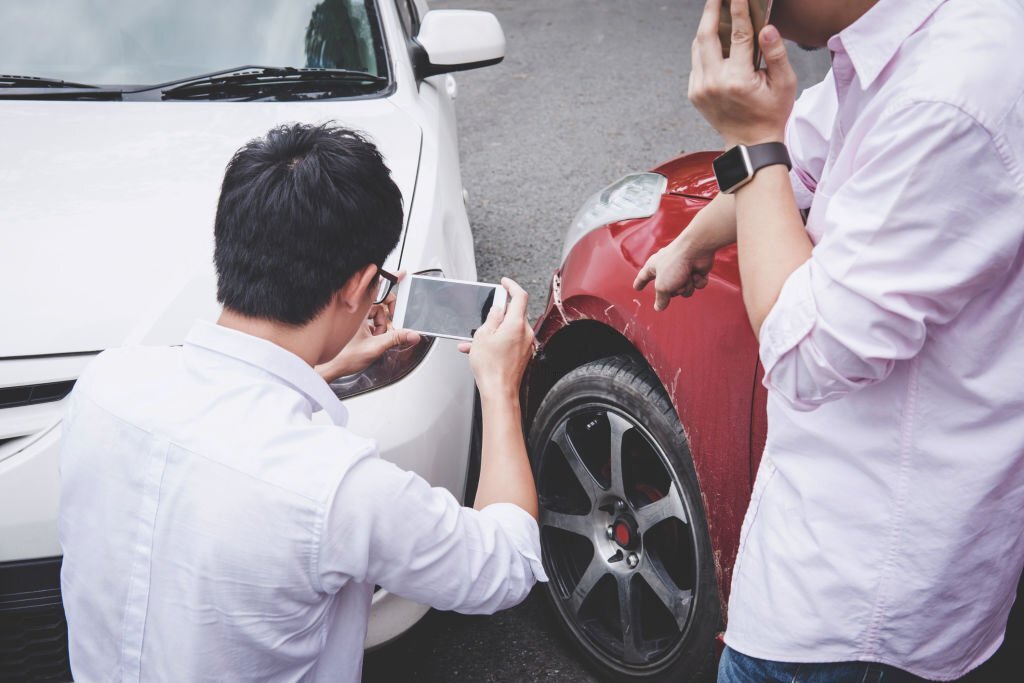
If you or have been in a car accident recently, it is possible to settle a car accident claim without a lawyer and get the outcome you are looking for. Remember that insurance adjusters may not give you the same deference or respect as experienced attorney until you show them you are pursuing your claim in a professional and business-like manner.
There are certain do’s and don’ts that come with settling a car accident claim without a lawyer. It’s important to understand what these are so that you can make informed decisions and avoid any costly mistakes. This blog post provides an in-depth look at how to settle a car accident claim without a lawyer by outlining the essential do’s and don’ts involved in the process.
Do Obtain a Police Report After the Accident
Obtaining a police report is an important first step in resolving a car accident claim without a lawyer. Even if the damage appears minor, it is strongly advised to get the police report. The officers are trained to assess the accident scene, interview drivers and witnesses, and evaluate causes and liabilities. Plus, they’ll also be able to provide insight into local laws and regulations related to your particular case. Also, having an official police report will serve as important evidence should you need it later on during the negotiations or in court. This includes documentation that can be used as leverage when communicating with insurance adjusters who may attempt to provide you with an inadequate amount of compensation for your injuries or damages.
Remember: Do not minimize the incident or provide false statements when interacting with law enforcement—the repercussions range from fines to arrests. Instead, provide only honest and accurate information about the accident as best you can recall it.
Don’t Admit Fault or Blame the Other Driver
When attempting to settle a car accident claim without a lawyer, it’s important to remember that you should never admit fault or blame the other driver. In some situations, the other driver may try to blame you for the accident, but it’s important to remain calm and collected and not let your emotions get the best of you. Doing so can be detrimental to your case, as any admission of fault on your part can be used against you by the other party.
When discussing fault with the other party, it’s best to focus on the specifics of what happened and use neutral language. This means avoiding words like “my” or “your” when referring to any responsibility for the accident. Additionally, keep in mind that any conversations with the other party should be kept brief and always follow up with clear written communication summarizing all agreements.
Do Get Information From the Other Driver
If you’re in a car accident, it’s important to get as much information from the other driver as possible. Make sure to get their name, contact information, insurance company name and policy number, and driver’s license number. It is also helpful to document the time of day, the other driver’s make and model of the car, and any visible damage to both vehicles.
Be sure to document all conversations with the other driver as well. Write down what was said word for word if you can remember it. You should also write down any witnesses that may have seen the accident. Having all this information can greatly help your case in the event you need to file a claim or take legal action.
The Pros and Cons of Settling a Car Accident Claim Without a Lawyer
One of the main reasons why people decide to settle a car accident claim without a lawyer is that they think it is an easier and cheaper solution. While it is true that settling a claim without legal representation can help you save money, it could also lead to problems down the line if you’re not careful.
Pros:
- You don’t need to pay legal fees.
- You can settle it i your own time frame.
- You can have more control over the negotiations and final outcome.
Cons:
- Without legal expertise, you may not get the full compensation that you deserve.
- You may not be aware of all your rights and liabilities regarding the accident or any potential litigation arising from it.
- If there are disputes between you and another driver, such as over liability or amount of compensation, they may not be resolved easily or quickly without legal intervention.
- Insurance adjusters may not be as motivated to settle without the threat of a lawsuit being filed.
How Much Can I Expect to Get From a Car Accident Settlement?
When it comes to the financial side of a car accident settlement, there is no easy answer. Depending on the details and circumstances of your case, you could be eligible for a lump sum settlement as well as additional payments for pain and suffering.
In general, settlements are tailored to the needs of your case and compensation may be awarded for:
- Medical expenses: Including hospital bills, doctor visits, physical therapy, prescription medications, and other related costs.
- Vehicle damage costs: To cover the cost of repairs or replacing your vehicle if it was totaled in the accident.
- Lost wages: If you were unable to continue working due to injuries incurred in the accident.
- Pain and suffering: To compensate you for the emotional stress caused by the accident, such as mental anguish or anxiety.
- Punitive damages/penalties: To punish the negligent party for their misconduct towards you. These are reserved for very rare cases.
Do Negotiate With the Insurance Company Yourself
Before beginning negotiations with an insurance company, here are some do’s and don’ts of representing yourself.
Do’s
- Research Typical Car Accident Settlements: Knowing the average payout for a car accident claim in your area can give you an idea of what to expect during negotiations.
- Use Records to Support Your Claim: Gather any records that can serve as evidence of the extent of your damages, such as bills for medical treatments or repair estimates for damaged vehicles.
- Take Notes During Negotiations: Document all conversations that you have with the insurance company and take note of any important comments they make.
- Request Written Documentation: Make sure to get any agreements in writing prior to settling on an amount so that there is no confusion later on down the line.
- Know all of your damages before accepting a settlement. This includes all medical bills and potential future treatment.
Don’ts
- Don’t Accuse the Insurance Company of Unethical Behavior: Even if an insurance company is giving you a hard time, it is important to remain professional throughout negotiations as anything inflammatory could derail productive discussion in your case and hurt the chances of a good settlement.
- Don’t Rush Into a Settlement: Be sure to take time when reviewing offers from the insurance company and consider whether it covers all expenses related to your accident before making a decision on whether or not to accept it.
- Don’t Settle Too Early: If you feel like your offer from an insurance company is too low, do not rush into accepting it—there may be other options available, such as filing a lawsuit or taking your motion to mediation or arbitration instead.
Conclusion
Navigating a car accident claim on your own can seem daunting, especially if you do not have experience in legal matters. However, if you are armed with the knowledge of the do’s and don’ts of settling a car accident claim, you can maximize the compensation you receive and secure the justice you are entitled to. And remember, seeking legal advice is always an option if you feel that you need more guidance. Our team of expert lawyers at Ferrante & Dill, LLC can help you get the compensation you deserve. Call us for a free consultation at (410) 535-6100.
Disclaimer!
This blog post that is published by Ferrante & Dill is only available for informational purposes and should not be considered legal advice. By viewing these blog posts, the reader understands there is no attorney-client relationship between the blog publisher and the reader. The blog post should not be used as a substitute for legal advice from a licensed professional attorney, and we recommend readers to consult their own legal counsel on any specific legal questions concerning a specific situation.




